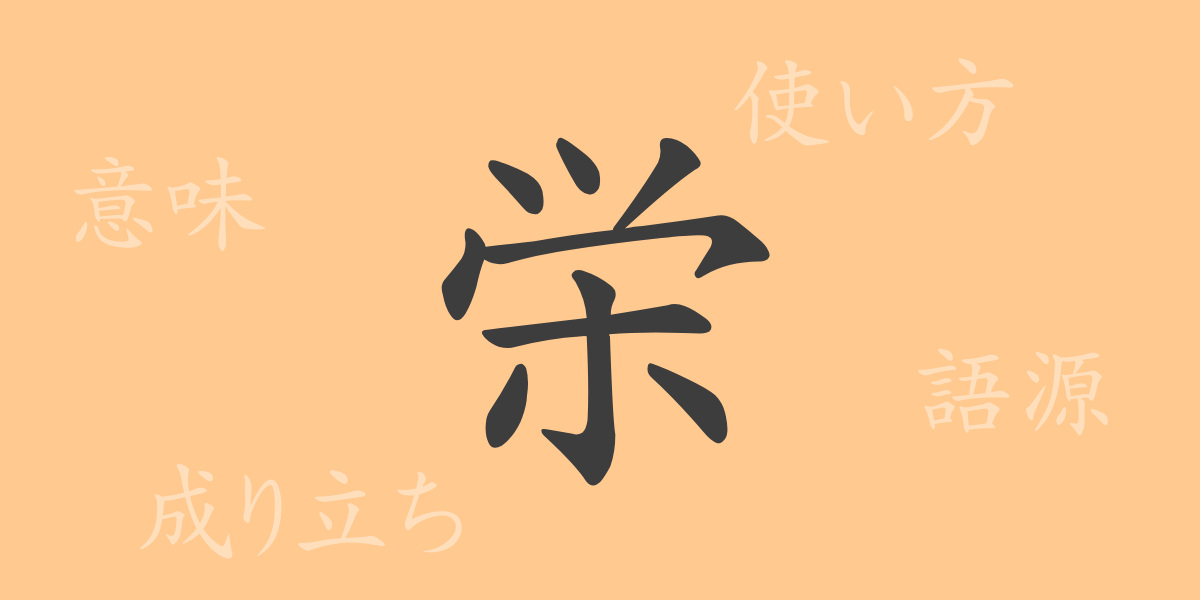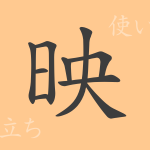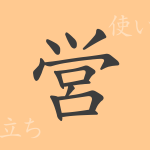“
Kanji characters are deeply rooted in Japanese culture. Each one weaves its own unique story and blends into our daily lives. In this article, we will focus on the common Japanese kanji “”栄”” (Ei) and explore its charm. From the historical background of this single character to its meaning, usage, and even compound words and idioms, let’s unravel the full picture of “”栄””.
The Origin of 栄 (Ei)
The kanji “”栄”” originated from a combination of the radical “”木”” (Ki), meaning tree, and “”彡”” (San), indicating growth. This combination evoked the image of a tree growing lush and prosperous. Born in ancient China, this character was passed down to Japan over time and has undergone its own unique development.
The Meaning and Usage of 栄 (Ei)
“”栄”” has meanings such as “”to prosper,”” “”to flourish,”” and “”honor.”” It is also used in the sense of a vital element that supports life, such as in the word “”栄養”” (Eiyou), meaning nutrition. In Japan, it is sometimes used in people’s names and place names and is cherished as an auspicious character.
Reading, Stroke Count, and Radical of 栄 (Ei)
Let’s take a closer look at the reading and components of the kanji “”栄””.
- Reading: The on’yomi reading is “”エイ”” (Ei), and the kun’yomi readings are “”さかえる”” (Sakaeru), “”はえ”” (Hae), and “”はえる”” (Haeru).
- Stroke Count: 9 strokes in total.
- Radical: 木部 (Kihen), the “”tree”” radical.
Compound Words, Idioms, and Proverbs Using 栄 (Ei) and Their Meanings
There are various compound words, idioms, and proverbs that include “”栄””. Here are a few examples:
- 栄光 (Eikou): Honor or glory.
- 栄転 (Eiten): To be promoted to a better position.
- 栄養 (Eiyou): Substances necessary for living organisms to survive.
- 盛者必衰の理 (Jousha hissui -no- kotowari): The principle that those who prosper will eventually decline.
- 栄枯盛衰 (Eiko seisui): The rise and fall of fortune, expressing the transience of the world.
Conclusion on 栄 (Ei)
The kanji “”栄”” has been cherished by people since ancient times as a symbol of growth and prosperity. Its readings and meanings are diverse and play a very important role in the Japanese language. Through compound words like “”栄転”” (Eiten) and “”栄光”” (Eikou), people’s wishes and history are reflected. From this single character, we can catch a glimpse of the depth of Japanese spirituality and culture.
“

























